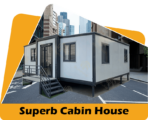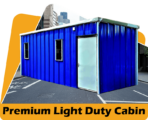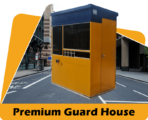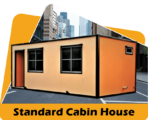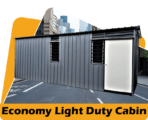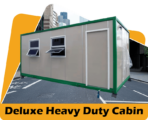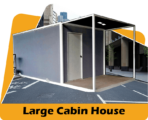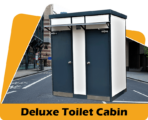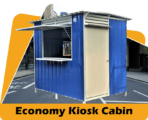10 Popular Questions About Prefab Homes in Malaysia
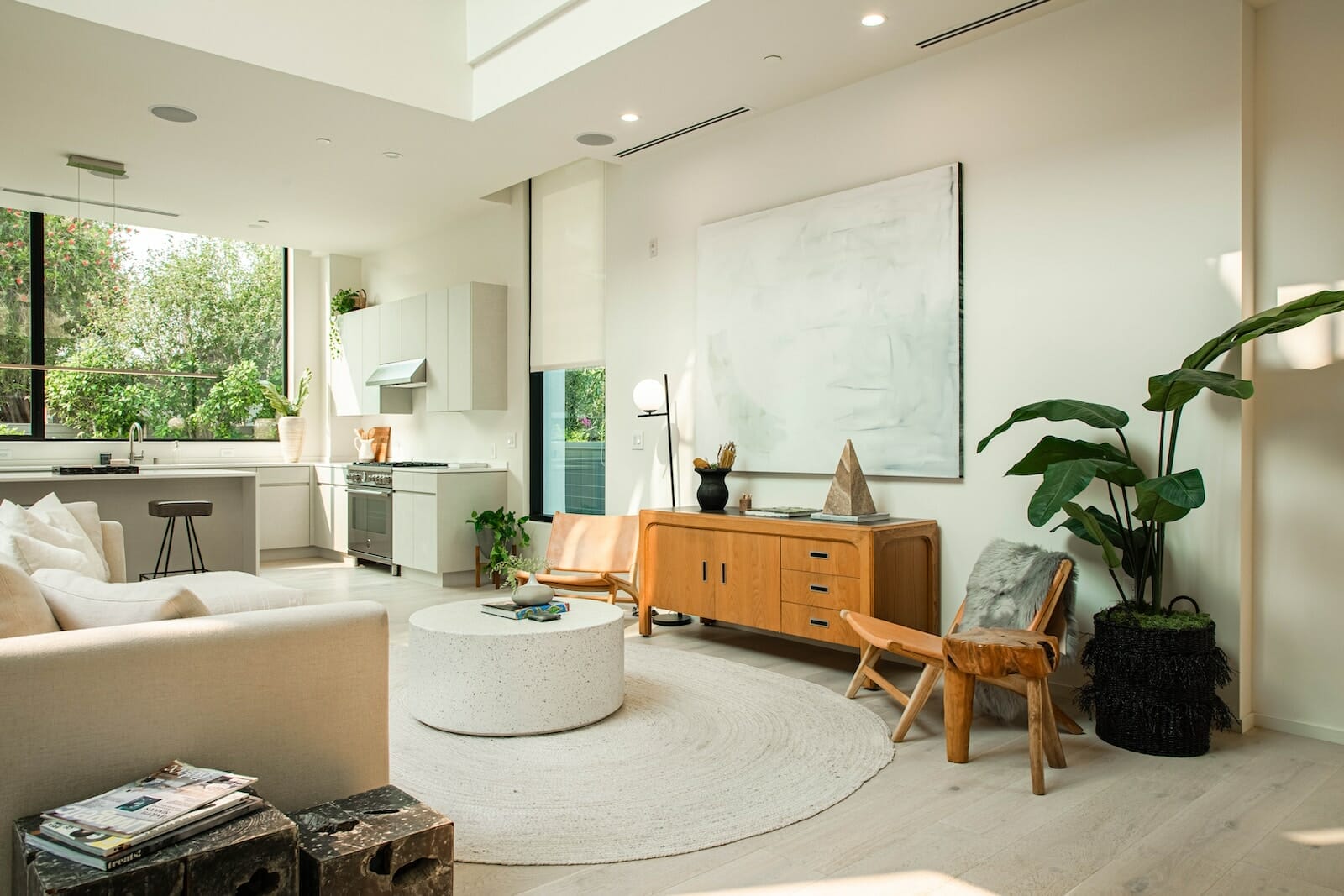
- What are the advantages of prefab homes in Malaysia?
- What are the disadvantages of prefab homes in Malaysia?
- How much does a prefab home cost in Malaysia?
- What are the best prefab home companies in Malaysia?
- How long does it take to build a prefab home in Malaysia?
- What are the different types of prefab homes available in Malaysia?
- What factors should I consider when choosing a prefab home in Malaysia?
- How customizable are prefab homes in Malaysia?
- What are the financing options for prefab homes in Malaysia?
- How energy efficient are prefab homes in Malaysia?
What are the advantages of prefab homes in Malaysia?
Prefabricated, or prefab, homes offer many benefits for homebuyers in Malaysia. Here are some of the main advantages of choosing a prefab home:
- Speed of construction – Prefab homes can be constructed much faster than traditional built homes. Components are manufactured offsite in a factory and then assembled onsite. This reduces construction time significantly.
- Cost savings – Prefab homes are generally 10-20% cheaper than conventional homes in Malaysia. Factory mass production brings efficiency and economies of scale.
- High quality – Prefab manufacturing employs techniques and standards that deliver consistent, high-quality results. The components are not exposed to weather elements during construction.
- Customization – Although prefab homes are manufactured, buyers can still customize floor plans, finishes, fixtures and more. Flexibility exists within the manufacturing process.
- Sustainability – Prefab components are designed to reduce material waste. The homes are energy-efficient and eco-friendly, with options like solar panels.
- Resilience – Prefab buildings are structurally sound and can better withstand earthquakes, floods and high winds. Components are securely fastened together.
- Minimal disruption – Prefab assembly causes less noise, dust and disruption at the site. Neighbouring homes and businesses are not affected by lengthy conventional construction.
- Warranties – Most prefab builders offer warranties on the structural integrity and components. This covers defects for many years after building.
In summary, prefab homes in Malaysia offer faster construction times, cost savings, sustainability, resilience, customization and quality warranties. For many buyers, these advantages outweigh any drawbacks and make prefab home construction an attractive choice.
What are the disadvantages of prefab homes in Malaysia?
Although prefabricated (prefab) homes offer many benefits, there are also some potential disadvantages to consider:
- Limited customization – Although customization is possible, it is more limited than a fully customized conventional build. Standard floor plans dominate.
- Site constraints – Prefab homes may not work on properties with challenging topography or site access limitations. Site prep is critical.
- Accessory buildings – Attachments like garages or porches may need to be site-built, which reduces cost efficiency.
- Permitting – Some local councils in Malaysia are not familiar with prefab, which can complicate and delay permitting. Expert support is needed.
- Financing – Prefab homes may not qualify for traditional construction loans. Specialized prefab financing may be required.
- Resale value – Although improving, prefab homes may have lower resale value than conventional site-built homes due to perception.
- Transport costs – For remote sites, transporting large prefab modules can add significant costs if access is difficult.
- Skill gap – The prefab industry in Malaysia is still developing. There is a shortage of experienced prefab builders and contractors.
- Stigma – Some buyers perceive prefab homes to be lower quality than site-built, despite advances in quality.
In summary, downsides like limited customization, site constraints and financing issues can be navigated with proper planning and research. Prefab home quality and performance now rivals traditional building, dispelling outdated stigmas.
How much does a prefab home cost in Malaysia?
The cost of prefabricated (prefab) homes in Malaysia can vary greatly depending on size, materials, customization and other factors. However, here are some general guidelines on prefab home costs in Malaysia:
- Small 1-2 bedroom prefab – RM150,000 to RM300,000
- Medium 3-4 bedroom prefab – RM350,000 to RM700,000
- Large custom luxury prefab – RM800,000 to RM2,500,000+
Land costs will also need to be factored in and can range tremendously based on location. Land for a prefab can cost RM50,000 to over RM500,000.
Labor and installation will add RM15,000 to RM150,000+ depending on site accessibility and complexity. Shipping/transport fees also apply.
Customization and upgrades like high-end appliances, alternative energy systems, entertainment options and smart home technology can add another RM50,000 to RM300,000+.
Permits, surveys, fees will cost RM5,000 to RM30,000 based on local council requirements. Any site clearing, access road building or prep work adds more.
Interior fit out with lighting, cabinets, tiles and furnishings can range from RM20,000 for basic to RM150,000+ for luxury finishes.
In summary, total turnkey costs for a prefab home in Malaysia often range from RM250,000 to RM1,500,000 depending on all factors. The cost is usually 10-20% cheaper than conventional construction. Savings grow with increased customization and complexity.
What are the best prefab home companies in Malaysia?
The prefabricated (prefab) home industry in Malaysia is growing, with many companies offering high-quality prefab construction. Here are some of the best and most reputable prefab home builders in Malaysia:
- Golden Sharp (GS Cabin) – One of the leading prefab companies in Malaysia, offering modern architectural designs and extensive customization. Based in the Klang Valley.
- Pekat Teknorite – Established prefab builder providing affordable models like their best-selling Teknorite Double-Storey houses.
- Ikhmas Jaya – Known for their stylish prefab bungalows and luxury villas. Higher end of the market.
- Nusa Idaman – Offering basic entry level prefab kampung houses through to larger custom residences.
- Putrajaya Perdana Berhad – A public listed developer with a strong focus on innovative prefab projects.
- Geoscape – Specializes in sustainable and energy efficient prefab homes using the latest technologies.
- Prmuda Idaman – One of the pioneers in prefab construction in Malaysia, building since the 1990s.
- Sustainlite – Provider of lightweight steel-frame prefab houses, commercial buildings and disaster relief housing.
- Frontier Factory – Designers of contemporary prefab homes with modern industrial architectural aesthetic.
- Mobilestructures – Prefab studio concentrating on creative modular structures like tiny homes and container homes.
There are many other trusted prefab builders throughout Malaysia, but these companies stand out for their experience, quality and range of options. They offer quick construction times along with customization and value.
How long does it take to build a prefab home in Malaysia?
One of the major benefits of prefabricated (prefab) homes in Malaysia is the speed of construction compared to conventional site-built homes. Here are some general timelines:
- Manufacturing – For standard designs, offsite manufacturing takes 2-6 weeks once engineering is finalized and materials procured. Custom or complex modules may take 6-12 weeks to fabricate.
- Foundation – The concrete slab foundation can be prepared in 1-2 weeks concurrently while manufacturing occurs offsite.
- Delivery – Transporting the finished modular components takes 1-5 days depending on distance. Nearby manufacturing reduces delivery times.
- Assembly – Onsite assembly of a standard prefab house in Malaysia averages 2-6 weeks. Larger or multi-story units may take up to 8 weeks.
- Interior Fitout – Installing kitchens, bathrooms, tiling, painting etc takes another 1-4 weeks depending on scale.
- Services – Electrical, plumbing, gas and air-con connections add 1-2 weeks. Council inspections occur during this stage.
Total construction time averages 3-6 months for most standard prefab homes in Malaysia from design finalization to completion. For complex luxury prefab builds, the process can take 6-12 months.
Either way, prefab home construction is 50-70% faster than conventional building which averages 6-12 months for single story units. This speed advantage remains a key benefit influencing buyers in Malaysia.
What are the different types of prefab homes available in Malaysia?
There is great variety in the prefabricated (prefab) home options available from Malaysian builders. Here are some of the main types of prefab homes in Malaysia:
- Modular box prefab – Stackable boxes made of steel, timber or composites form modules that are assembled onsite into houses.
- Panelized prefab – Flat panel wall, roof and floor segments that are joined together. Quick and inexpensive.
- Hybrid prefab – Mixing panelized and modular elements. Used for components like bathrooms.
- Steel frame prefab – Lightweight steel framing infilled with panels or other lightweight materials.
- Container prefab – Converted shipping containers used as dwellings or combined into larger structures.
- Tiny prefab home – Miniature prefab units under 500 sq ft for affordable living or recreational use.
- Mobile prefab home – Relocatable, wheel-mounted prefab units that can be transported after assembly.
- Manufactured prefab – Factory-built to any design. Offered by companies like Synergy and Ikhmas Jaya.
- Kit prefab home – DIY flat-pack systems assembled onsite like IKEA furniture.
- Custom luxury prefab – Bespoke designs and materials for high-end market. Built by firms like Putrajaya Perdana.
Malaysian prefab builders offer modular, hybrid, flat-pack, mobile and manufactured systems. Customization exists across the range of types and market segments.
What factors should I consider when choosing a prefab home in Malaysia?
Buying a prefabricated (prefab) home in Malaysia is an exciting project, but also a major investment. To choose the right prefab home, consider these key factors:
- Budget – Determine your budget for the total build cost including land, delivery, assembly, fitout and any customizations or upgrades.
- Site – Evaluate if the site dimensions, terrain, ground stability and access can accommodate prefab construction.
- Design – View design galleries and select a layout and architectural style aligned with your lifestyle needs and tastes.
- Customization – Decide which areas you want customized like layout, facades, finishes, fixtures and fittings.
- Quality – Research builders thoroughly and visit any completed projects to directly assess build quality.
- Timeline – Confirm time estimates for completion and coordinate site readiness to sync with prefab delivery and assembly.
- Warranties – Review warranty terms on both structural components and fixtures/fittings to protect against any defects.
- Approvals – Verify that the prefab home and builder comply with all local council planning and building regulations.
- Finance – Explore lenders experienced with prefab projects. Financing may differ from traditional construction loans.
- Resale value – Although improving, seek reassurance that the prefab home will have decent future resale potential.
Taking time to carefully evaluate these key considerations will help ensure you select the ideal prefab home and builder for your needs and priorities.
How customizable are prefab homes in Malaysia?
One common misconception is that prefabricated (prefab) homes sacrifice customization for speed of construction. However, leading builders in Malaysia offer extensive options to tailor your prefab home.
Here are key areas where customization is possible:
- Layouts – Modify interior room configurations or change exterior dimensions if site allows.
- Facades – Select different architectural styles and finishes for exterior walls, windows, doors.
- Interiors – Choose finishes like tiles, cabinets, bathroom fittings from provider’s range.
- Fixtures – Upgrade lighting, fans, sanitaryware, wardrobes and other fixtures.
- Fittings – Decide on built-ins like kitchen counters, wardrobes, shelving to suit lifestyle.
- Smart home – Integrate preferred smart controls, alarms, sensors and home automation tech.
- Alternative energy – Add solar PV panels, solar water heating, biomass systems or other renewable energy sources.
- Accessibility – Adapt layouts and fittings to improve accessibility for users with different mobility.
- Landscaping – Work with provider’s landscape designers to integrate outdoor living areas.
- Additions – Include bonus spaces like carports, porches, balconies. Some need site-building.
With a collaborative designer, most buyers can customize their prefab home substantially while still enjoying faster construction compared to conventional homes.
What are the financing options for prefab homes in Malaysia?
Prefabricated (prefab) homes are gaining popularity in Malaysia, but financing them can be different than traditional property loans. Here are some of the main financing options to explore:
- Prefab housing loans – Many banks like Maybank, CIMB and RHB now offer specific loan packages for prefab homes.
- In-house financing – Larger prefab builders may offer in-house financing options at competitive rates.
- Construction loans – If certain criteria met, prefabs can qualify for property construction loans.
- Personal financing – Banks may approve personal loans, lines of credit or refinancing existing property.
- Joint financing – Combining finances with family members to collectively fund the prefab home.
- Developer financing – When buying a prefab in a township, the developer may arrange financing.
- Small business loans – An option for entrepreneurs using a prefab as a home office or other business.
- Workforce financing – For executive-level company employees who qualify for workforce financing schemes through employers.
- Islamic financing – Banks like Maybank Islamic offer shariah-compliant financing for prefab projects.
- Government housing loans – For low-income groups, subsidized loans via agencies like 1MDB may be available.
Research lenders open to financing prefab construction and explore all options to find the most favourable rates and terms for your prefab home purchase.
How energy efficient are prefab homes in Malaysia?
Prefabricated (prefab) homes offer many sustainability benefits over conventional construction. Here are some of the reasons prefab homes can be highly energy efficient:
- Tight seals – Prefab components seal together tightly reducing air leaks that waste cooled or heated air.
- Insulation – Walls, roofs and floors incorporate insulation that regulates interior temperatures.
- Thermal mass – Some prefabs use concrete in walls and floors to absorb and slowly release heat.
- Solar orientation – Prefab designs optimise window placement and shading based on sun paths.
- Solar power – It is easy to install photovoltaic panels on prefab rooftops to generate electricity.
- Eco-materials – Prefab manufacturers utilize recycled and eco-friendly construction materials.
- Waste reduction – Precise prefab manufacturing and modular construction generate almost no waste.
- Smart controls – Home automation systems manage lighting, cooling, equipment for optimal efficiency.
- Appliances – Energy-saving appliances and LED lighting are standard in most prefab packages.
- Water reuse – Rainwater capture and greywater recycling systems can be integrated during prefab manufacturing.
In summary, through precision construction and sustainability focused design, the best prefab builders create homes that consume far less energy than conventional buildings.
Key Takeaways
- Prefab homes offer major time and cost savings compared to conventional building.
- Leading builders provide extensive customization options for layouts, finishes and fixtures.
- Carefully evaluating factors like budget, design and quality is important when choosing a prefab home.
- Financing, approvals and resale value considerations for prefabs may differ from site-built homes.
- With tight seals, insulation and solar-ready roofs, prefab homes tend to be highly energy efficient.
In Conclusion
- Prefabricated homes are an innovative construction method gaining popularity across Malaysia for affordability and sustainability.
- Although some limitations exist, advantages like speedier construction and energy efficiency make prefabs an attractive housing option.
- With proper research and planning, buyers can work with prefab providers to customize homes matching their lifestyle needs and budget.
- As the prefab housing market matures in Malaysia, homebuyers will continue benefiting from quality, value and faster turnaround times.
Kontraktor Rumah Kabin
Rumah Kabin Murah
Rumah Kontena Vs Rumah Kabin
Rumah Kabin Pasang Siap
Senarai Harga Kabin di Malaysia
Heavy Duty Cabin
Light Duty Cabin
